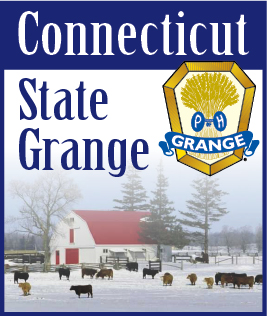| APRIL 17, 2010 -- Once a week, people drive out to the farm to pick up their prepaid share - a bag or a box of fresh produce grown right there. They chat with the farmer who has planted the seeds and turned the soil that produced their tomatoes or peppers or squash.
These customers are partaking in community-supported agriculture, known as CSA. Ten years ago, there were fewer than 10 CSA farms in Connecticut. Today, there are more than 40.
There are organic and non-organic CSA farms. But all are evidence that this model of growing and selling and buying local produce has become more than a fad. As farmers sell shares of their farm in exchange for a cut of their products, it has evolved into a viable business model. CSA is helping farmers stay in business while responding to the national trend among consumers to eat more food that is locally grown.
With the 2010 growing season underway, state agriculture officials say it looks like CSA will keep its momentum.
"To me, it's the future," said Fred Monahan of Stone Gardens Farm in Shelton. "It's a good way to connect the grower with the consumer."
The CSA model is fluid. Each farmer decides what works best for his or her customers or community: Sometimes customers pay upfront for only a weekly or biweekly share; some farms require pickup, some will deliver; some sell half-shares while others sell only full shares.
But the crux of the system is that, as one University of Connecticut commercial agriculture expert explained, "The customers share the risk instead of putting it all on the farmer who, usually when Mother Nature strikes, takes it all on the chin."
Because customers are paying upfront for their vegetables, said UConn's Jude Boucher, the farmers are able to cover costs for the season.
Boucher said that farmers throughout the state are starting up CSAs to complement their other marketing avenues.
"There should be at least a CSA in every single town," Boucher said.
Monahan and his wife, Stacia, have been growing vegetables on their Shelton farm since 1998 and, after three seasons, their CSA portion of the farm is up to 400 shares, one of the largest totals in the state. Their shares cost $600 each; but prices each farm charges for a share vary. "I wish I did it sooner. We've doubled every year," Monahan said.
Beyond Organic
Monahan has also noticed a shift in the focus of his customers, who seem more enamored of the locally grown aspect of CSA shares than with the organic principles, which had fueled the CSA fire for years.
"We use organic measures, but we're not certified organic," he said. "It's more important [to some customers] to know that it's grown here and that you're protecting farmland."
The organic customers are still a vital part of the CSA structure, but the appeal has broadened in the past few years, said Steven Reviczky, executive director of the Connecticut Farm Bureau Association, an independent organization of farmers.
"There is a huge demand for consumers to know their farmer and know where their food is coming from," he said. "It's an amazing turn of events where people are willing and able to buy local."
The most recent tally in the state counted 42 CSA farms, Reviczky said.
"Clearly this is a growing way that agricultural producers can market their fruits and vegetables and other Connecticut-grown products," he said.
The Griffin family in Suffield started selling CSA shares last year to save its family farm for a few more generations. Sheri Mandirola, her brother, Jonathan Griffin, and her sister, Sarah-Jean Griffin, are the 10th generation to farm their family's land.
They aimed for 30 shares on the Oxen Hill Farm CSA, and ended up with 36 families buying $425 shares. This year they'll shoot for 100, and last week had 60 signed up.
"There was such a demand for it," Mandirola said. "It's a local way to sustain our open space and to keep it in our family name. Being the 10th generation is not something we take lightly, and this is a viable way for us to do that."
For those who remain loyal to the 100 percent organic farms, the list of options is growing as well. The Northeast Organic Farming Association of Connecticut keeps a list of certified organic CSA farms on its website, www.ctnofa.org/CSAs.htm. Other CSA farms can be found at www.buyctgrown.com."We're very supportive of anything that promotes economic viability for farms, and CSAs are an up-and-coming thing," said Don Tuller, farm bureau president.
|
